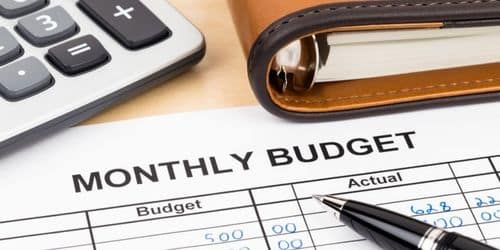While it’s true that money can’t buy happiness, it can provide peace of mind if you know how to handle it. Your finances would be more of a mystery without proper money management. Overspending and surviving from paycheque to paycheque are two possible outcomes. Also, if you want to better your financial situation, you don’t need higher-paying work or inheritance. Better money management is sometimes all that’s needed for people to cut back on spending, boost their capacity for investment and savings, and realize previously unreachable financial goals. So how do you increase your financial confidence and lessen your concern about achieving your financial goals? Developing stronger financial and mental management skills may be helpful. Whether you are in your 20s or a couple, we have compiled in this guide the finest financial tips and books on how you can manage your money to give you a great start
Overview
People always argue money can’t buy happiness, maybe. However, it can provide peace of mind if you know how to handle it. You may feel like you’re always on the edge of a financial precipice if you don’t learn to manage your money.
In reality, 37% of Americans would use a credit card, a loan, or a friend to cover a $1,000 financial emergency, according to research, and 25% of Americans claim to be continuously concerned about money. Hence, you should learn to handle your money wisely if you want to avoid being in sticky situations like this one.
Although life may not get any easier should you manage your money wisely, you will have more time to devote to the things that matter most in your life. Fortunately, regaining control of your funds is not too difficult.
Having a firm grasp on one’s financial situation makes for a lot smoother journey through life. The amount and quality of debt you end up with are directly related to how you manage your finances and the credit score you achieve.
Remember that you can’t just assume you can afford something when making a purchase, particularly one involving a sizable buy. Be sure you have the money for it and that you haven’t previously spent it on something else.
Money management generally involves calculating whether or not you can afford anything using your budget and the money in your bank and savings accounts. Keep in mind that having enough cash on hand does not guarantee that you can go on and make a purchase. What bills and expenses will need to be paid until the next paycheck arrives should also be taken into account.
Tips on How to Manage Money
If you take the time to assess your current financial situation on a frequent basis and make adjustments accordingly, you will be able to better manage your finances. Meanwhile, if you don’t already have a budget, for instance, you may begin by creating one. If you make a budget, you can compare your actual expenditure to that number. With an understanding of your income and expenses, you may make decisions about saving more, paying down debt, or investing in accordance with your financial objectives.
Taking care of your money doesn’t have to be a huge hassle. There are several simple yet effective tips on how to manage your money either in your 20s or as a couple below. Hence, start putting these tips on how to manage your money into practice one by one and soon you will have your financial situation under control.
#1. Create Appropriate Bank Accounts
The proper bank accounts are essential to your financial success since managing your money without them is akin to maintaining your vehicle without the correct parts. Hence, you should strive to open checking, savings, and investment accounts.
They serve as the foundation for achieving financial success. It’s crucial to open both a checking and a savings account so you can readily distinguish between short-term savings and spending money.
It’s far too simple to unintentionally spend what should be your savings just by leaving them in your checking account. Therefore, setting up the right accounts for the right objectives is essential.
#2. Have a Budget
Many often avoid budgeting because they believe it will involve a tedious process of itemizing costs, totaling up amounts, and double-checking everything to make sure it all adds up. A lack of financial competence leaves no space for excuses when it comes to budgeting. Why not spend a few hours every month on a budget if that’s all it takes to get your expenditures in order? Don’t get bogged down in the mechanics of making a budget; rather, concentrate on the benefits you’ll reap as a result.
#3. Be sure to Make Use of the Budget
Budgeting is pointless if it turns out you put it away in a dusty folder on a shelf or in a box in the basement. Use it as a resource all month long to help you stay on track with your monthly spending goals. In addition, keep it up to date when you make purchases and pay your monthly bills. As a matter of fact, you should always be aware of how much money you have available to spend each month, taking into account any outstanding bills.
#4. Analyze Your Present Financial Condition
Even though it could be terrifying, without evaluating your existing circumstances, you won’t be able to learn about money management or take steps to improve it. So, you should be totally forthright with yourself about any outstanding debt, student loans, or exorbitant costs which are straining your budget.
Appreciate your wise financial decisions while also considering how you may improve your money management. Make sure to put everything in writing so you can see the big picture.
#5. While Selecting How to Handle Your Money, It Is Important to First Establish Realistic Goals
To truly take control of your financial situation, one of the most effective money management strategies is to create and stick to a set of financial goals. Setting financial objectives will keep you motivated and centered on your long-term financial success.
There is no definitively correct response, but you should give some consideration to how finances might affect your plans. Once you have a grasp on the role that money will play in your life, you can set objectives that are both realistic and ambitious.
#6. You Should Always Do a Daily Review of Your Financial Situation
Without an accurate assessment of your current situation, it is basically impossible to chart a course for improvement. Spend five minutes a day reviewing your financial situation.
Have you reached a spending threshold? If you could describe your typical monthly budget, what would it be? If so, then you are on the correct course.
Knowing is crucial because you may then make the required modifications. It may sound like a hassle to have to check on your finances on a daily basis. However, that doesn’t mean it has to take forever.
Quickly assess your financial standing with the help of a mobile app or a spreadsheet, so you can get back to living your life. Streamlining your financial processes with automation software can also reduce stress.
#7. Save Money by Reducing Unnecessary Spending
Before you begin to learn about money management, examine your spending. Look for areas of your monthly budget where you may make savings.
Saving $20 every month on something you don’t need can add up to $240 over the course of a year.
Work lunches, a box subscription, or your cable bundle are a few easy items to take off. One of the best money management strategies you can adopt to make saving simpler is to reduce your spending!
#8. Focus and Check Your Earnings
It may seem apparent, but knowing your precise salary is crucial. Don’t forget to subtract your tax liability from your gross income. With this figure, you may more precisely plan your financial resources.
Consider starting a side business if your overall income leaves you feeling underwhelmed. You may fit a profitable side business into your schedule and significantly boost your financial situation by working from home.
Negotiating your wage is another technique to increase your revenue. Approaching your boss with evidence to back up your request for a raise should not be a cause for concern. Besides, you can never be sure what they might have to offer.
#9. Develop a Strategy for Debt Repayment
Having to pay off debt is generally a significant stressor on one’s budget. It has an impact on both your present and future financial plans.
If you’re wondering, “How can I handle my money properly?” then paying off your debt should be one of your top priorities.
Think about your options for paying off your debt and go with the one that works best for you. You shouldn’t let debt prevent you from reaching your financial goals. So, develop a strategy to cut your debt right away.
#10. Become Familiar With Your Credit Score
The three-digit figure that represents your credit score can have a significant effect on your financial well-being. Lenders, for instance, will more readily extend favorable loan terms and interest rates to applicants who have established a strong credit history.
An interest rate drop, even slightly, can save borrowers thousands of dollars when applying for big loans like mortgages.
In other words, go to work if you want a better credit rating. You should get a copy of your credit report to verify for inaccuracies and then enroll in a credit monitoring program to keep it error-free in the future. Making payments on time and keeping your credit utilization rate low are also great methods to raise your credit score.
One can typically avoid taking on additional debt and improve your credit with the aid of a solid credit-builder account.
#11. Create an Emergency Fund
The easiest method to handle money is to budget for unforeseen costs. Having an emergency fund on hand can be crucial. Regrettably, life often surprises you with unexpectedly high costs.
Usually, these unexpected costs come together with bad circumstances like a hospital visit or a job loss. Although it’s impossible to ever predict when an emergency will arise in your life, you can be proactive by saving money.
#12. Prioritize Saving a Portion of Each Paycheck Into the Emergency Fund
The typical recommendation for an emergency fund is three to six months of living expenses. Yet, this depends on how comfortable you are taking risks. Putting additional money into an emergency fund may make you feel more secure if that is the case.
However, you should keep your emergency fund in a separate savings account. If not, it would be too simple to spend these funds.
You won’t need to stress about money when an unexpected event occurs. In its place, you’ll be able to give your full attention to the urgent matter at hand. It’s a decision you’ll be glad you made in retrospect.
#13. Save for Your Retirement.
Sometimes it’s hard to justify making a financial investment in one’s future retirement. After all, retirement is decades away and you have no plans to stop working anytime soon. In any case, it is crucial that you begin putting money away for retirement as soon as possible.
Participating in any retirement programs offered by your company is a bare minimum. If your employer offers a matching contribution, it’s important to take advantage of it.
If you aren’t eligible for matching contributions, you should open a Roth IRA (Individual Retirement Account). You can achieve your yearly retirement savings goals by setting aside a portion of each paycheck.
What Is the 30-Day Rule With Money?
The 30-day savings rule is straightforward: the next time you’re on the verge of making an impulse purchase, stop yourself and give it 30 days to pass. After those 30 days, if you still want to buy that item, go for it.
How Do I Stop Wasting Money?
Here are some suggestions to help you reduce your spending and establish better financial practices:
- Establish a Budget
- Envision Your Savings Goals
- Always bring a list when you shop
- Put an end to brand names
- Master Meal Prep
- Consider Using Cash While Buying at Stores
- Take Temptation away.
What Are the 3 Basic Steps to Better Money Management?
Basically, there are three simple things you can do to maximize your financial resources, whether for yourself or your family:
- Create a budget
- Set savings goals
- Tackle your debts.
What Are the Biggest Money Wasters?
Here are some of the top wasters of money;
- Bank Fees
- Cell Phone Plans
- Late Fees
- Insurance You Don’t Need
- Ghost Subscriptions
- Energy Vampires
- Unnecessary Bank Fees
- Not Adjusting Your Thermostat
- Plumbing Issues
- Convenience Stores
- Soft Drinks
- Magazines
- Credit card annual fees
How to Manage Money as a Couple
Due to the combining of two financial situations and two incomes, thinking of how to manage money as a couple can be challenging. Even though you’re working on handling your finances together, there can be significant income gaps, especially if one of you is the primary provider or if the other is carrying a big credit card or college debt.
Regardless, there will always be a way out. You can work together and figure the “how” out by sourcing tips that can help you manage money and reduce financial stress as a couple.
While there is no one method to manage your money as a new couple, with little forethought, communication, and trust, you and your partner may avoid financial arguments in your marriage. However, if you’re having trouble coming up with a shared strategy that appeals to both of you, get the expert counsel of a financial counselor.
How to Manage Money in Your 20s
It’s important to strike a balance throughout your 20s between being responsible and having fun, between building your profession and starting a family, and between saving money and enjoying it. Each milestone in life happens at a different moment, but it’s feasible that you’ll hit several of them throughout your twenties. They could involve relocating for work, starting a business, having kids, purchasing a home, and other life changes.
Whatever your ambitions and objectives, the moment has come to take charge of your finances and make them a reality. But how do you do just that? How do you manage your money in your 20s?
Below are some tips on how you can manage your money in your 20s, even as a couple;
- Establish sound budgeting habits
- Build your credit
- Reduce your debt
- Automate your savings
- Begin saving for retirement
- Make efforts to purchase a home
- Be sure you have financial protection for yourself and your family
How Can I Motivate Myself to Save Money?
Here are some of the fines suggestions for boosting your motivation;
- Be in the company of folks who respect your budget
- Read books on how to manage money
- Use an app to simplify budgeting
- Visualize your objectives.
- Define your why
- Spend less on fun
- Prioritize forward moving
- Celebrate wins (big and small)
- Establish an emergency fund
- Increase your knowledge of money management and budgeting
Conclusion
Your finances would be more of a mystery without proper money management. Overspending and surviving from paycheque to paycheque are two possible outcomes. Having a firm grasp of your cash flow will allow you to make smarter choices that will ultimately benefit your financial situation.
Although life may not get any easier should you manage your money wisely, you will have more time to devote to the things that matter most in your life.
Related Articles
- HOW TO BUILD WEALTH FROM NOTHING: How to Build Wealth From Nothing in Your 20’s, 30’s, 40s, & 50’s
- HOW TO BUILD WEALTH: Secrets to Building Wealth
- BUILDING WEALTH: Simple Wealth-Building Strategies
- HOW TO MAKE MONEY WORK FOR YOU: Easy Ways to Make Your Money Work for You
- HOW TO GROW YOUR MONEY FASTER & SAFELY: Smart Tips to Follow in 2023
- 48 LAWS OF POWER: About & Full List






